Condominium associations are not-for-profit corporations, and like for-profit corporations, management decisions are made by a duly elected board of directors. However, unlike in a typical corporate board, condominium board members serve on a voluntarily basis, and often have busy schedules or full-time jobs that prohibit them from devoting the majority of their time to association board business. Many condominium boards, in associations both big and small, try to balance this time commitment by initially discussing condominium business via email, and then later having an open meeting to vote on the matter. The recent First District Appellate case Palm v. 2800 Lake Shore Drive Condominium Association, 2014 IL App (1st) 111290 does not change the law, but clarifies that this conduct is improper pursuant to the Illinois Condominium Property Act (the “Act”).
In the Palm case, the disgruntled plaintiff/owner asserted that his condominium board was breaching its fiduciary duty by making association decisions via private meetings and emails, outside of open meetings with notice to owners. The Board responded that merely discussing board business in private, or polling or canvassing board members by email was permitted, as long as any final vote was conducted at an open board meeting.
In support of this position, the Board relied on Sec. 2(w) of the Act which defines a “meeting” of the board as "any gathering of a quorum of the members of the Board of Managers *** held for the purpose of conducting board business." In its briefs to the Court, the Board pointed out that in 1994, the Illinois legislature amended Sec. 2(w) by substituting the phrase "discussing board business" with "conducting board business." The Board argued that based on this change in the language, there should be more flexibility in allowing a board to have informal discussions or workshops in advance of the vote at an open meeting. The Court apparently was unimpressed with this reasonable argument, and concluded that a board cannot properly vote on an issue unless it also discusses and considers the issues before any vote. Therefore, the Court ruled that these workshops or email exchanges constituted “conducting board business” and were thus improper outside of an open meeting.[1]
The clear takeaway from this case is that a quorum of board members should not engage in private debate or deliberation of board matters, whether by email or by a chance meeting in the hallway of the building. Going forward, the challenge facing condominium boards is trying to somehow avoid “conducting board business” as they continue in their efforts to administer the day-to-day affairs of the association. Take for example the typical board responsibility of soliciting contractor proposals for a building repair project. Certainly it would be permissible for a board president to merely circulate copies of contractor proposals to the other board members via email. On the other hand, it would clearly run afoul of the Palm decision if the board president also made a recommendation regarding her preferred contractor in her email, or otherwise polled the other board members for their opinion regarding the proposals. However, what if the board president gives no opinion, but merely highlights the comparative cost or scope of the contractor proposals in her email? It is in this gray area that condominium board members will have to contend with as they continue to devote their time to this volunteer endeavor.
Finally, one option that is available to an association board is to further delegate day-to-day association affairs to its licensed property manager. Specifically, the Palm Court noted that as long as the association declaration permits the hiring of a managing agent (most declarations do have such a provision), a board is able to delegate certain decision-making to the manager outside of an open meeting. Based on the foregoing, a board may have the option of providing blanket authority to a manager on certain matters, including the following; 1) entering into contracts below a certain dollar threshold, 2) waiving the association’s right of first refusal, or 3) instituting collection efforts against a delinquent owner. Even with this possible solution, association boards will then have to grapple with how much authority they are prepared to delegate.
Please contact David Rudolph of Rudolph Kaplan LLC for more information regarding compliance with Palm v. 2800 Lake Shore Drive Condominium Association.
[1] The Palm decision does not affect a board’s ability to deliberate in executive session in three limited circumstances; 1) discussion by the board of "pending" or "imminent" litigation in which the association is a party, 2) to consider information regarding employment or dismissal of an employee, and 3) to discuss violations of rules and regulations of the association or a unit owner's unpaid share of common expenses. (See Sec. 18(a)(9) of the Act.) However, the Palm Court did point out that any final decision made in executive session must be later voted on at an open meeting.

